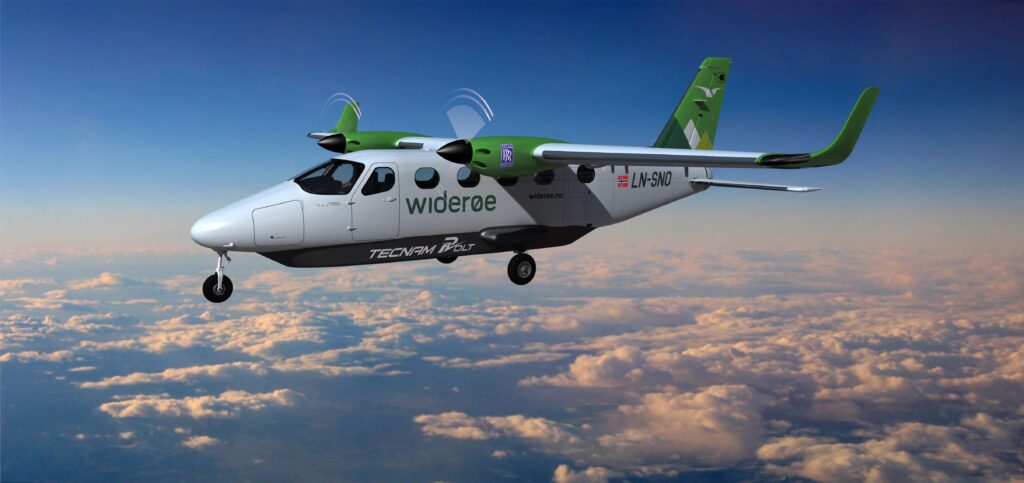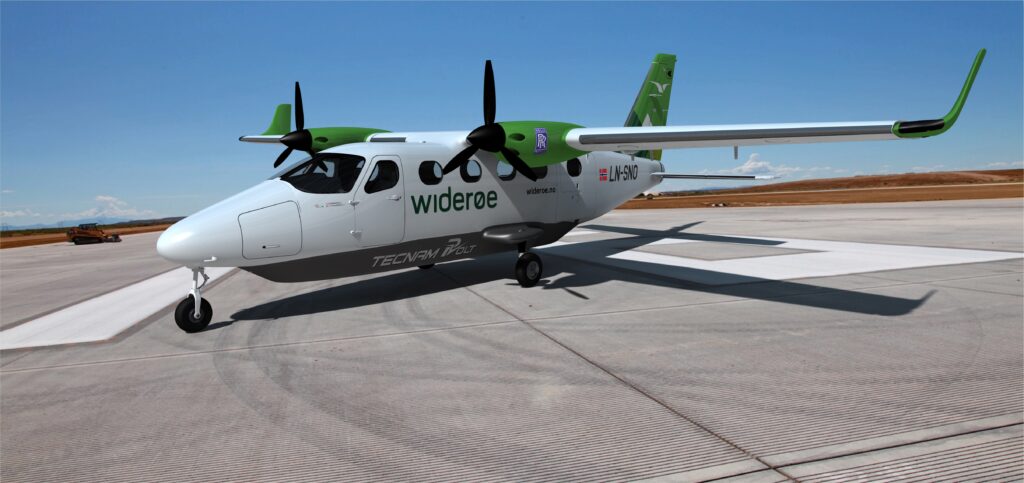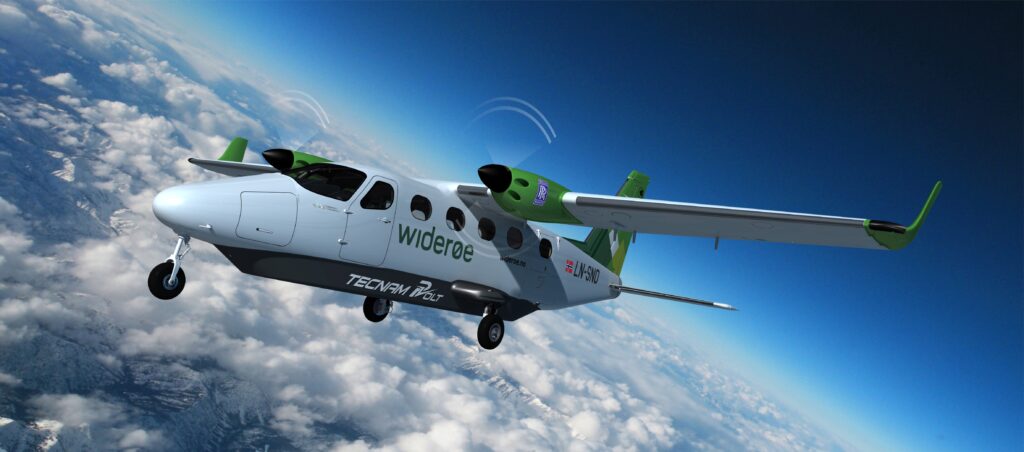Electric passenger aircraft set for the skies
- PostedPublished 14 September 2021

Scandinavian airline Widerøe has partnered with aviation specialists Rolls-Royce and Tecnam to develop and introduce a commercial all-electric passenger aircraft by 2026.
The collaboration builds on an existing joint sustainability project between Widerøe and Rolls-Royce, the latter of which already had a partnership with Italian aeronautics company Tecnam.
By combining their efforts, the companies aim to design and deliver an all-electric commercial passenger aircraft that could be promptly introduced into service in the Norwegian market.
Rolls-Royce will provide propulsion and power systems engineering expertise, while Tecnam will serve up the required airframe development, production facilities and certification.
Widerøe itself will set about ensuring that all the required legal and competence requirements for airline service are in place and complied with, the aim being to permit all-electric passenger services in 2026.
The move has been prompted – aside from the increasing prominence of and shift towards decarbonisation and green technologies – by the Norwegian authorities’ aims of transitioning all domestic flight to electric power by 2040.

Many domestic flights in Norway are short, Widerøe reporting that 74 per cent of its flights are less than 275km and that some flights take as little as seven minutes. Consequently, a small zero-emissions aircraft would be an ideal and environmentally friendly solution.
Developing such an aircraft might sound unfeasible, in such a short space of time, but there is an ace in the hole: the Tecnam P-Volt.
The development project, which was announced by Tecnam and Rolls-Royce in October 2020, is a zero-emissions variant of Tecnam’s piston-powered P2012 11-seater.
This all-electric twin-motor aircraft, which will be designed to be suitable for short- and medium-range flights, will seat nine.
Every system will be optimised to deliver sustainable and pollution-free operation, from its motors to its climate control and anti-icing systems, while “dedicated battery technology” will allow the quick turnaround required of a commercial passenger aircraft.
Stein Nilsen, chief executive of Widerøe, said: “Norway’s extensive network of short take-off and landing airports is ideal for zero-emissions technologies.

- CategoriesIn SightGlass
- Tagsaeroplanes, aviation, electric aeroplanes, electric aviation, electric planes, electric vehicles, planes, SightGlass News 24

